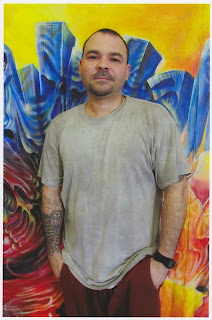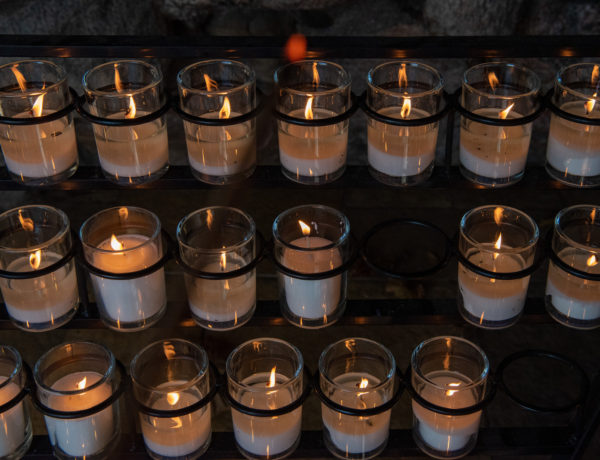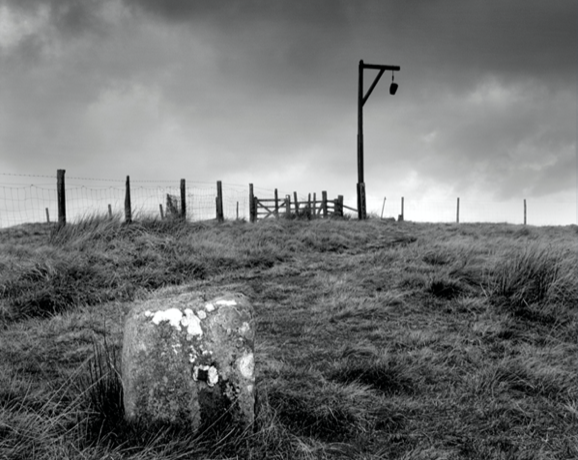By Eduardo Ramirez
For Donald Hall.
“It wasn’t always this way. At the beginning of my bid, I was angry. I was a five alarm fire in a one truck town and I was ready to burn down everything and everyone. I slept a few hours each night, and my days were restless and filled with anxiety. I hated the white guards ‘cause they reminded me of all the people I blamed for my situation: white judge, white prosecutor, white public defender, white jury. I hated the black guards ‘cause I thought they were sellouts. I hated the other guys on the row ‘cause they were crazy, know-it-alls, or happy-go-lucky fools that didn’t realize they were about to die – some even expected a mystery god to come down and pluck them up like a precious flower from this rotten garden. I hated myself, and in the loudness of my anger I couldn’t figure out why. I needed a little peace of mind so that I could think straight. It took several years before I realized my peace and quiet were there all along.
Imagine the quietest place on earth. A church might come to mind, or maybe the top of Mount Everest. But even a church has bells that ring, and rough winds howl atop every mountain. But on the row it’s solemnly quiet. Sure, some guys talk in chess moves from time to time, and there’s the sound of trays being passed through the bars, but, in general, everyone has too much on their mind that only silence can work out. It was in this silence that my thoughts began to speak with God. It wasn’t gradual, the way it is for some. It was instantaneous and surprising to me when I found myself speaking into the silence. And the silence spoke back to me. Whom else could it be but God? I just accepted it. I was too beat down to fight it anymore. So when I did push ups, God coached me between each rep; I wrote a letter home, God inspired my words; but especially when I read the Bible, God directed me to the best scripture at the best times. It really did change the air around me; cooled out my fire, and gave me a different perspective on life.
With my perspective starting to change – a result that certainly was the culmination of circumstance and godly influence – I started to see things make a change for the better. All of my relationships improved dramatically. My daughters responded more frequently to my letters. My interaction with staff became less contentious and, at the very least, more courteous – by professional standards, if nothing else. But almost as important as my relationship with my Lord and Savior, who had prepared a home for my soul, was my relationship with my lawyers, who were trying to save me here on Earth. I started to see them in a new light: their long hours and hard work in their vocation working against capital punishment, and it wasn’t all that pro-salary either. I’m sure my surliness came off as anything and everything but the appreciation I should have been expressing.
I wanted to be a new man. I apologized to people and began listening to them without feeling compelled to respond. The older guys on the unit began to invite me into their flashbacks of the early days: when they were all as suave as Billie Dee, and as debonair as Sidney. Never mind that these flights of fancy were, for the most part, gross exaggerations of the way things actually were. I had a knack for interpreting these revelries in a way that highlighted our potential for kindness – and as unspoken as it might have been, my brothers and I on the row knew our regrets and eased each other’s guilt.”
“The cell was a nightmare. It looked like it hadn’t been occupied since the days of Al Capone, and no one had bothered to clean it since, either. Layers and layers of paint caked on the walls; layers and layers peeling and chipping away. I felt like I was living in a musty shoebox. I could reach out and touch either wall with my fingertips. But amid all the dust and grime that needed an industrial grade sandblaster was a toilet that had a universe of bacteria growing in it. I wasn’t sure if it was feces or rust that crusted over the inside of the bowl. I just rolled up my sleeves and went to work with an old toothbrush and scouring pad. It didn’t come off easily. It took about a week just to get half the bowl looking decent enough that I didn’t wanna retch each time I looked into it. I must’ve used a dozen pair of rubber gloves on that operation. But as I scrubbed away a thought occurred to me: I was that toilet bowl.
Jesus found me on death row when I was covered in years of slime that no sane person would touch. He rolled up his sleeves and with his word, like steel wool, he scraped away; he got down on his knees and held his breath through the stink and polished me up into a new vessel. No one wants to scrub toilets but we all want our souls to be saved. It just so happens that some souls are filthier than a toilet – someone still has to save them, though. I figured, if Jesus thought I was worthy of salvation than even the filthiest toilet is worthy of bringing back to its original luster. Jesus brought me back to a shine brighter than a new penny, and absolutely worth more too.
That’s how I got the name “Lovin’ Life”. I really do love it, and I wanna encourage us all to love it. We’ve all got our crusty sides to us but God, Yahweh, Allah, Buddha – doesn’t really matter which – tends to us nonetheless. I don’t just love my life, I love your life. I feel responsible in my actions ’cause I know they can influence others – for either good or evil. If anything, I wanna affect the good.”
 |
| Edward Ramirez |





1 Comment
AussieEyes
May 7, 2018 at 4:26 amI love this story. it's beautiful!